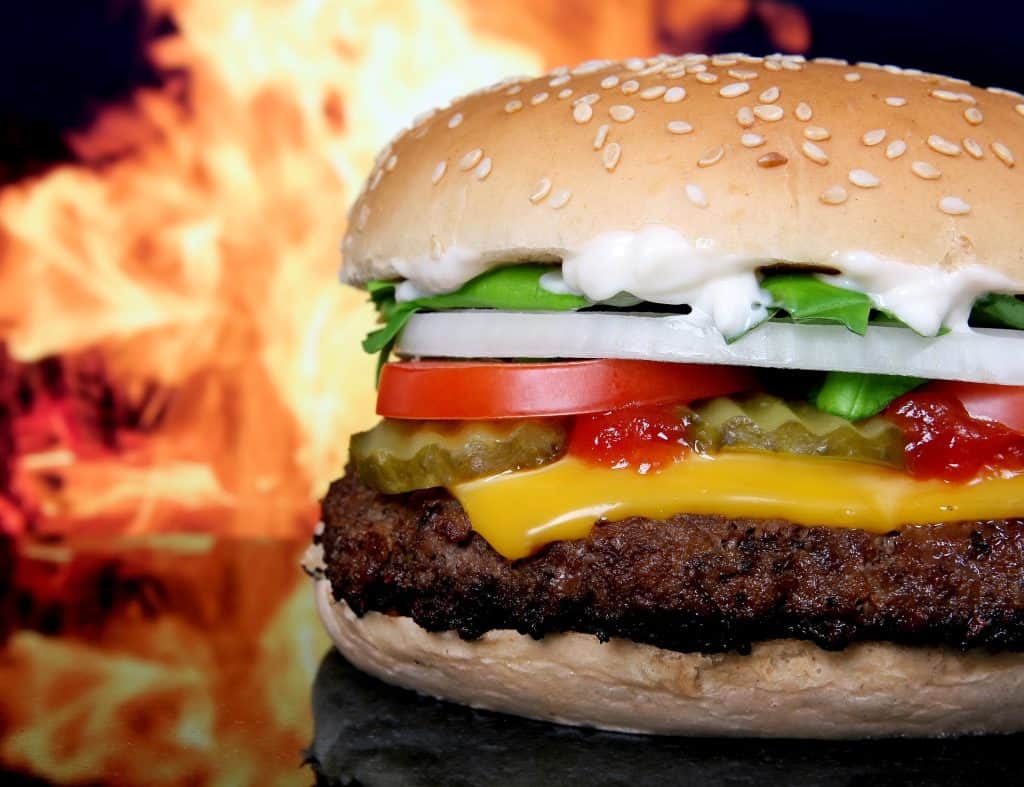Ultra-processed food linked to cancer

The headlines this week have confirmed something close to our hearts at The Hub: the link between ultra-processed food and cancer. We’ve been banging on about this for some time… now at last we’ve got documented facts and figures – and, boy, are they compelling. A new study reveals that upping the amount of convenience food you eat by just 10% is associated with a 12% increase in some kinds of cancer, especially breast cancer.
But if you’re busy, working and running a family, convenience food is all too enticing: a quick ready-made meal in the oven, nuggets and chips for the kids, sweet cereals for breakfast… we’ve all been guilty of the easy-eating trap. Do you always say no to the biscuits doing the rounds at work? Is a takeaway your Friday night treat? And how often do you succumb to a mid-afternoon naughty but nice to tide you through your 4-5pm slump?
We’re here to help. If you’d like advice on balancing your diet and substituting more healthy, nutritious options for these ultra-processed foods, then make an appointment with Rhi Hepple, our naturopathic nutritionist. She can advise on meals you can make that are packed with goodness but easy to prepare, balancing your diet to avoid ultra-processed foods. She has more than a few suggestions on getting nutrients into kids who are vegetable-shy. Her mantra is making food your medicine to stay fit and healthy to a ripe old age.
Link between ultra-processed food and cancer
A study, published this week in the British Medical Journal, has found that there is a clear link between ultra-processed food and cancer. Researchers at the Sorbonne in Paris analysed the medical records and eating habits of 104,980 adults (the majority middle-aged women), with people recording what they ate over a period of 24 hours from a list of 3.300 food items that were then categorised by how processed they were (using a system called NOVA). Their health was then followed over five years and the finding was that a 10% increase in the amount of ultra-processed food in the diet is associated with a 12% increase in cancers across the board. Most striking was the risk of breast cancer rose by 11%.
What is ‘ultra-processed’?
The definition of ‘ultra-processed’ is a little hazy, but clear candidates on the list are:
- ready meals
- packaged baked goods and snacks
- fizzy drinks
- sugary cereals
- reconstituted meat products
- instant noodles and packet soups
- chocolate bars and sweets
- salty snacks such as crisps
Bottom line: any food involving an industrial procedure. Some estimates tag us Brits with being the worst eaters in Europe, with processed foods constituting half the average diet.
However, the study drew the link with ‘ultra-processed’ only – no such cancer risk was associated with foods designated as merely ‘processed’, such as cheeses and canned veg.
More research is required to ascertain whether the higher cancer risk from highly processed food can be put down to the high load of sugar, fat and salt or possibly the additives, or whether it is the processing itself that denudes the ingredients of nutritional value.
Who’s at a higher risk of cancer?
The researchers at the Sorbonne concluded: ‘These results suggest that the rapidly increasing consumption of ultra-processed foods may drive an increasing burden of cancer in the next decades.’
However, ultra-processed foods are not of course the only culprits for cancer. Being overweight is the biggest preventable cause of cancer after smoking, increasing the risk of 11 types of cancer. And the researchers did stress that those in the study who ate a lot of ultra-processed foods also had other lifestyle habits that are linked to cancer. They were more likely to smoke, for example, were less active, consumed more calories overall and were more likely to be taking the Pill.
Though the analysis did allow for these factors, the message is coming loud and clear: food is a huge determinant of your longevity and longterm health. Several other studies have also shown that limiting your consumption of ready meals and fast food can reduce life-threatening conditions such as type 2 diabetes.
Bottom line…
These latest findings are, we believe merely the tip of the iceberg, linking health to our modern-day lifestyle. Our most powerful weapon against cancer and other chronic diseases is to reduce both what we put in our bodies and also what we put on our bodies (which is why at The Hub we only sell natural products) and reduce the toxins in our environment. We also need to strengthen our detox pathways through good digestion and kidney function and ensuring we are active. Which, of course, we also have covered at The Hub with all our yoga…!
If you’d like to book an appointment with The Hub’s naturopathic nutritionist Rhi Hepple give us a call or click here
The Natural Health Hub, Lymington’s home for yoga, complementary therapies and nutrition wisdom
